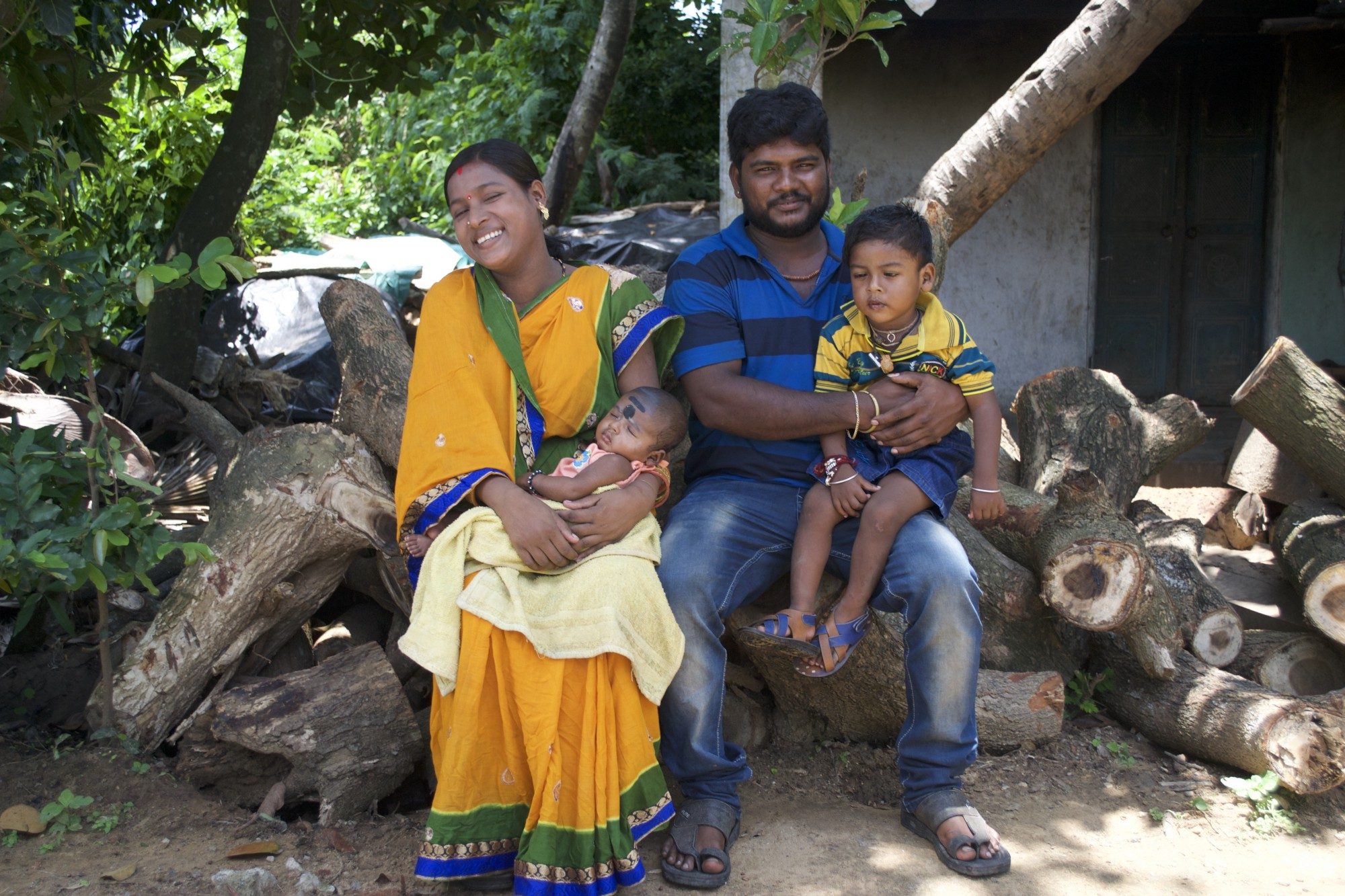Planning for Business, Family & Future
Surprise parties are great! Surprise flowers, sure. But some things in life require a plan.
In a savory division of labor, Reena Gouda, 24, mixes the murki batter while her husband, Kunna, fries the delicious snacks. Together, they package a mountain of the scrumptious cheese treat, the sales of which make a steady income for their family, which recently expanded to four.
As partners in parenting and business, Reena and Kunna are glad to be able to plan how many children to have and when. When Reena was pregnant with their second son, a village community health worker visited their home and explained the pros and cons of a range of contraceptive methods to help the couple make an informed decision that best suited their family. The Goudas live in Cuttack district in Odisha state, India, where nearly 14 percent of married couples have an unmet need for family planning.
“I was not sure if I wanted to go for a permanent method right away, but I knew for sure that I did not want another child immediately,” says Reena.
Community health workers really can do it all.
Laxmipriya Boi, Reena’s community health worker, received training in providing new family planning services from the United States Agency for International Development’s flagship Maternal and Child Survival Program (MCSP), led by Jhpiego.
Across the five focus states where MCSP is working, thousands of women are accessing quality family planning through trained providers like Laxmipriya who put the right of decision-making into the hands of couples. By the time she knocked on Reena’s door, Laxmipriya felt competent and confident to explain the range of family planning options.
POP—the right choice for Reena
Of the options offered to her, Reena was most intrigued by progesterone-only pills (POPs) a family planning option offered by the government of India as part of a pilot project. Reena learned that the method could be started right after delivery and would remain effective for 6 months. Later, she could switch to another method if she chose.
“I was told that I have to space my pregnancies otherwise my health could get bad or I would not be able to take care of my children properly,” Reena said. “I felt that the POP was the most suited option for me right now.”

These days, Laxmipriya routinely visits Reena to check on her, ensuring the young mother’s peace of mind. Working with other village community workers, Laxmipriya helps contribute to India’s progress in achieving the goals outlined in Family Planning 2020, a global movement that supports the right of women to freely decide whether, when and how many children to have.
MCSP is providing technical support to the Government of India in five states — Odisha, Chhattisgarh, Assam, Maharashtra, and Telangana — to expand access to quality family planning services. The Government has included progesterone-only pills (POPs), Centchroman and injectables to the current basket of family planning options as part of a pilot project.




